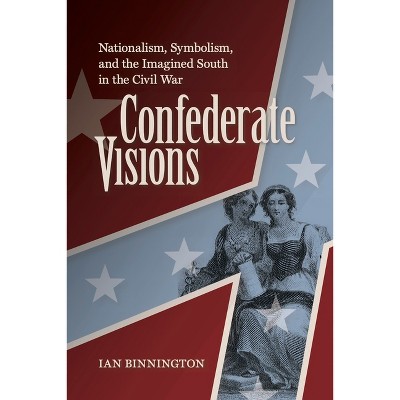About this item
Highlights
- How did early Americans define themselves?
- About the Author: Jason Richards is Assistant Professor of English at Rhodes College.
- 256 Pages
- Literary Criticism, American
Description
About the Book
The book offers a new model for understanding the ways in which the nation's identity and literature took shape during the early phases of the American republic.Book Synopsis
How did early Americans define themselves? The American exceptionalist perspective tells us that the young republic rejected Europeans, Native Americans, and African Americans in order to isolate a national culture and a white national identity. Imitativeness at this time was often seen as antithetical to self and national creation, but Jason Richards argues that imitation was in fact central to such creation. Imitation Nation shows how whites simultaneously imitated and therefore absorbed the cultures they so readily disavowed, as well as how Indians and blacks emulated the power and privilege of whiteness while they mocked and resisted white authority.
By examining the republic's foundational literature--including works by Washington Irving, James Fenimore Cooper, Harriet Beecher Stowe, Herman Melville, and Martin Delany--Richards argues that the national desire for cultural uniqueness and racial purity was in constant conflict with the national need to imitate the racial and cultural other for self-definition. The book offers a new model for understanding the ways in which the nation's identity and literature took shape during the early phases of the American republic.
Review Quotes
[L]ively and sophisticated... Imitation Nation is an academic book that could be shelved with works of postcolonial theory, transnationalism, critical race theory, and American literary nationalism. Luckily, Richards writes with genuine clarity, so those interested in academic debates can see just where and how this book fits within those schools of thought.
-- "Chapter 16"[T]hrough lively readings of texts ranging from Charles Brockden Brown's Edgar Huntly (1799) to Martin Delany's Blake (1859)... Jason Richards's thoughtful study... seeks to excavate the racial roots of America's (cultural and literary) history.....Richards's work is deep and wide-ranging, rich and multivocal... casting fresh light on the complex intercultural dynamics that motivate texts and authors from the early Republican through the late antebellum periods.
-- "American Literary History Online Review"Brilliantly observed and argued, and a riveting read. Going beyond the much-discussed concept of blackface minstrelsy, Richards boldly argues that performances of redface and whiteface were just as frequent and volatile. With compassion to match his incisiveness, and a rigor to match his scholarly convictions, Richards has written a dynamic, galvanizing book that will inspire and sustain debate and interest for years to come.
--David Greven, University of South Carolina, author of Gender Protest and Same-Sex Desire in Antebellum American Literature: Margaret Fuller, Edgar Allan Poe, Nathaniel Hawthorne, and Herman MelvilleJason Richards persuasively unveils the ambivalent and imitative nature of American identity and literature, built in response to the racial and cultural anxieties that haunt the nation. Imitation Nation is, undoubtedly, a must-read for those interested in critical race theory, postcolonial theory, and American literary nationalism.
-- "Legacy"Richards writes lucidly, smoothly, and solidly to argue that "identity formation" based on racial, ethnic, and cultural imitation defined American character... Studying the postrevolutionary and antebellum period, Richards reconsiders classic work in the literary and cultural canon....but he also sheds important and fresh light on insufficiently explored and studied areas of cultural history regarding race, ethnicity, and performance.
-- "American Literature"Triangulating modes of inquiry, Richards studies hiding-in-plain-sight relationships among white Americans, African Americans, Native Americans, and white Europeans.... Exploring new relationships among established schools of thought, Richards provides a model for redressing the insularity that has long shaped conceptions of US history, literature, and culture.
-- "Early American Literature"Writing at the meeting point of historicist study of cross-racial performance and postcolonial theory, Richards finds ways to use the recent intensity and depth of argumentation about the signification of blackface minstrelsy to his advantage. Synthesizing the existing scholarship in clear and engaging prose, Richards takes up the contradictory impulses of blackface, redface, and whiteface. In Imitation Nation, the seeming contradictions resolve into paradoxical but forceful statements of cultural logic. In both historical and literary studies, this book deserves a wide and attentive academic audience.
-- "American Nineteenth Century History"About the Author
Jason Richards is Assistant Professor of English at Rhodes College.












